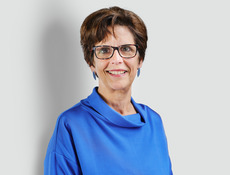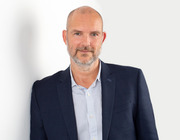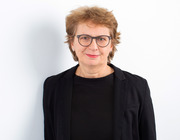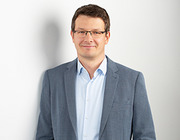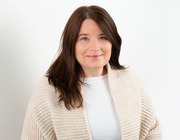In the future, digitalization will increasingly determine how we live and how we can participate in civic developments. The Bertelsmann Stiftung’s Reinhard Mohn Prize 2017 “Smart Country - Connected. Intelligent. Digital.” looks to emphasize this topic. The goal: to illustrate the opportunities digitalization offers and to develop positive associations and attitudes to pave the way to fostering an active approach towards digital transformation.

Jan Voth
How Is Germany Going More Digital?
Experts discuss Germany’s digital future at the second expert commission round as part of the Reinhard Mohn Prize 2017.
Content
How Is Germany Going to Become a Successful Digital Nation?
Dr. Brigitte Mohn, Liz Mohn, Art de Geus, Dr. Jörg Dräger and science, industry and administration experts discussed questions related to the above with a focus on the framework conditions necessary for successful human-centered digitalization.
The groundwork for this discussion was laid in the first expert commission round held last year in preparation for the Reinhard Mohn Prize 2017. Based upon research conducted on international best practices, the following key points on how to best develop and shape the digital shift were identified:
- Digital legal and organizational framework
- Digital infrastructures
- Secure information and communication technology
- Digital competence
An online survey on the key points listed above was conducted prior to the second expert commission round. It addressed 40 science, administration, industry and civil society experts. The experts were invited to submit statements on each of the four topics using InsightsDE a participation tool. These statements formed the basis of the agenda for the second expert commission round.
- On the topic of digital legal and organizational frameworks, experts discussed concrete examples that demonstrate just how much pressure is placed on acting and paving the way for digitalization in Germany.
- It was agreed that digital infrastructures are the key indicators showing at which stage the digitalization process is. Innovative methods and approaches are necessary to boost Germany’s performance and better equip Germany for the future.
- Secure information and communication technology, and the standards that would need to be enforced, were regarded as paramount to advance the digital shift.
- Digital competence permeated all of the discussion topics. Digital competence requires a country’s citizens to be well-informed and confident in the use of digital infrastructures. Internet users need to be empowered to confidently use digital media, and in doing so, observe legal frameworks (e.g. data protection) and know how to protect themselves from online security risks.
A catalogue of demands for a more digital Germany will be developed and published within the coming weeks. The catalogue is based on the expert commission rounds and the InsightsDE participation statements.
Expert Round
Experts invited to participate in the discussion included members of the Board, employees responsible for the Reinhard Mohn Prize and the topic of digitalization, and the following experts as listed below:
Dr. Stephan Albers, Managing Director, BREKO Bundesverband Breitbandkommunikation e. V. (Federal Association of Broadband Communication), Bonn; Dr. Wilfried Aulbur, Managing Partner of Roland Berger Strategy Consultants, Mumbai, India; Professor Gabriele Gramelsberger, Chair of Philosophy of Digital Media, Witten/Herdecke University, Witten; Willi Kaczorowski, Public Sector Consultant, Berlin; Dr. Alwin Mahler, Managing Director, Partner Business Solutions Germany, Austria & Switzerland, Google Germany GmbH, Munich; Professor Jörg Müller-Lietzkow, Institute for Media Studies, Media Economics and Media Management, University of Paderborn; Jan Oetjen, Executive Board, United Internet AG, Karlsruhe; Hardy Rudolf Schmitz, former Managing Director of WISTA-Management GmbH, Berlin; Matthias Spielkamp, Founder and Managing Director of AlgorithmWatch gGmbH (i.G.), Berlin; Dominik Wörner, Co-Founder of InsightsDE Besser gemeinsam entscheiden, German Office, Berlin
